Who is to blame for so many political deaths?

A new study on political violence has once again underscored the treacherous currents of politics in Bangladesh. According to a report citing the findings of the Human Rights Support Society (HRSS), in the first half of 2024, political conflicts claimed as many as 91 lives. Strikingly, 71 of them were supporters of the ruling party. These incidents were linked to electoral violence, territorial dominance, party infighting, and clashes between police and the opposition. The fact that even an affiliation with the mighty Awami League, which "helped itself" to a record fourth consecutive term in January, was no guarantee for safety goes to show the overall deterioration of our political climate.
These numbers came up in an overview of the state of human rights in general between January and June. During this period, there were 1,004 incidents of political violence that saw, besides the deaths, at least 4,026 people getting injured. However, the list of fatalities gives only a partial view of the precarity of political activists as it was the opposition activists that suffered disproportionately in every other aspect. For example, 714 political workers and leaders were arrested during this time, 574 of whom belong to BNP and Jamaat. Additionally, law enforcement agencies and ruling party activists foiled at least 99 opposition rallies. We also saw how questionable legal tactics were used to weaken the opposition before the general election, including through ghost cases, mass arrests, mass convictions, long pre-trial detentions, etc.
But the absence of a functional opposition also led to the ruling party allowing its "rebel" members to run "independently", putting one segment of the party against another, thus further stoking the tension brewing within its fold. It is as if the chaos it sowed to derail the opposition campaign has now come full circle to derail its own momentum, as the HRSS data suggests. Even as we write this, speculations swirl about a union parishad chairman in Khulna who was shot dead on the night of July 6. Sheikh Rabiul Islam Rabi, also a member of the district unit of Awami League, was the union's three-time chairman.
The lack of intraparty discipline far predates the January 7 election, however, and its "cultivation" over the years has led to constant infighting, so much so that ruling party members are now killing each other for their own gain.
This is deeply troubling. These political deaths—an apt description would be "killings"—are an extreme manifestation of a rot that has been eating away at our politics for a long time, and it will continue to spiral if steps are not taken to establish party discipline, rule of law, and of course, democracy in the country. As the party in power, the fallout of any chaos within Awami League inevitably spills over into the public life, and as such, the party leadership must take responsibility for it and strictly discipline their rank and file. They also must ensure equal treatment and opportunities for all political entities.


 For all latest news, follow The Daily Star's Google News channel.
For all latest news, follow The Daily Star's Google News channel. 
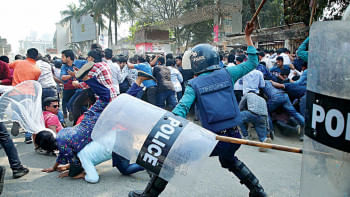



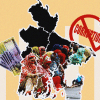
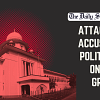
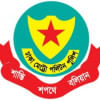


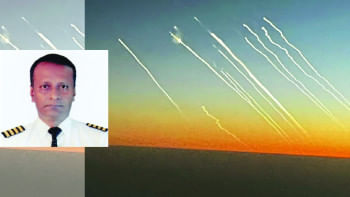
Comments